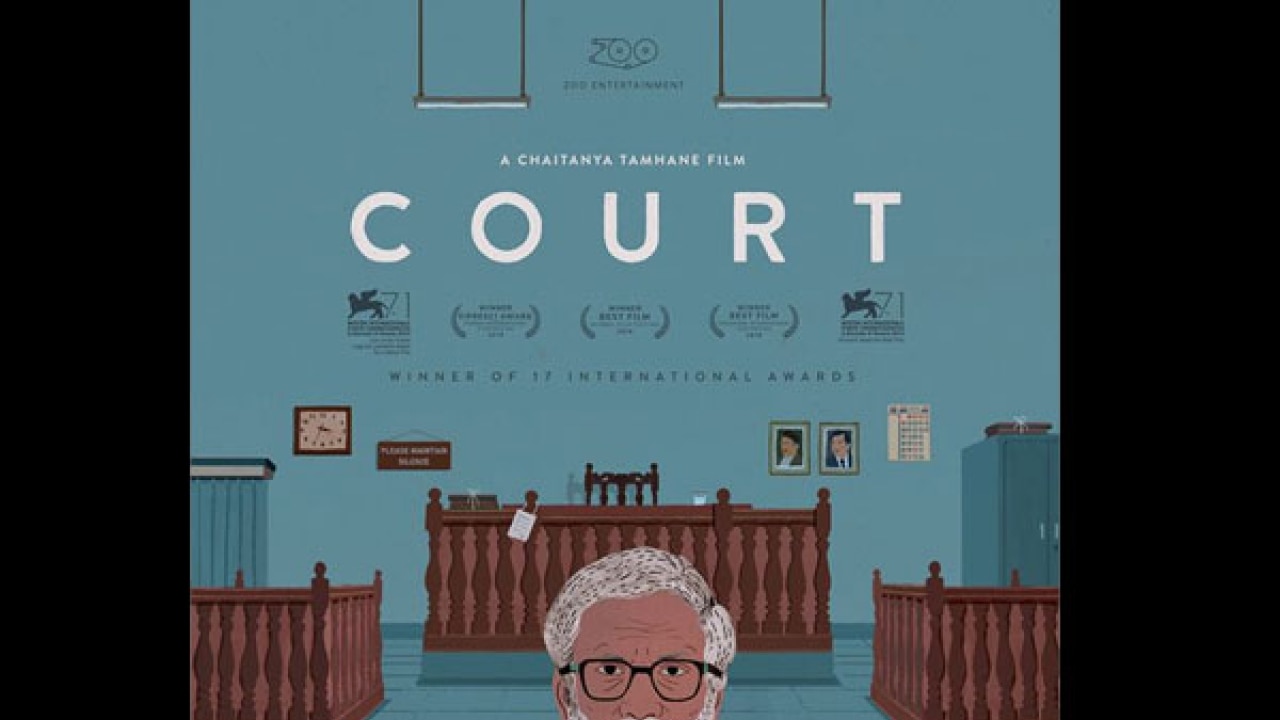
Late on last Tuesday night I got the opportunity to watch the highly acclaimed film Court. For almost a year, or maybe more than that, I had been hearing great things about the film mostly from my friends in the filmmaking or film writing business. And then almost a month before the film’s limited nationwide release, my timelines on the social networks went berserk promoting the film. Thankfully, the film lived up to the hype.
I knew I would be writing about the film in this space the moment I decided to watch it. Initially (since I had not seen the film till then) I wanted to write a piece on the challenges of forming an independent opinion about a film that everyone else was either loving or hating. However after watching the film I realised that such a piece would rob me of the opportunity to talk to readers about the importance of a film like Court and what it means for someone like me who is in the business of telling stories through the cinematic medium.
Assuming most of my readers, both young and old, would take the time and watch the film, I am not going to reveal much about the plot except that the film is about a Dalit protest singer who finds himself in court on charges of suicide abetment when a young sewer cleaner allegedly kills himself after listening to one of his protest songs. How the Indian judicial system dispenses with matter forms the real plot of the film.
For a sensitive individual Court can be a deeply disturbing experience for several reasons. The subject --- our judicial system --- is itself dreary. Doubtless an honest and compelling account --- one that eschews the traditional tropes of dramatic storytelling --- of the deliverance of justice in a democracy like ours is inherently unsettling but what makes Court special and a cinematic treat is its extremely powerful and quite successful deployment of irony.
In Court pure irony takes over drama. There is no close up shot in the entire film and other than one shot in which a character is shown crying there is hardly a moment when anyone is seen in a purely emotional context. The camera never moves: staying in one place, it observes life without making the effort to be insightful and captures the ironies that afflict the founding first propositions of the largest democracy in the world.
Made by Chaitanya Tamhane, a director still in his twenties, Court is one of the first films I have seen in the last two decades that engages the audience with notions of caste oppression and dissent in a democracy without actually talking about them. Seen in this light Court isn’t really a film about the judicial system as much as it is a discourse on the oppression of Dalits, the indifference of the middle class, and how the system neither forgives nor forgets anyone who raises a voice against the injustice.
By overtly remaining silent on the subject of oppression of the lower castes, Court successfully creates meaningful noise that gets deafening by the minute and to someone watching the film in a multiplex can be as guilt inducing as it is unsettling.
A blatant use of irony in showing our situation in an ‘as is where is’ kind of way Court neither asks questions nor offers to present any solutions. Court is undoubtedly a masterpiece of our generation, one that is likely to change the course of visual story telling by sensitive filmmakers in the future.